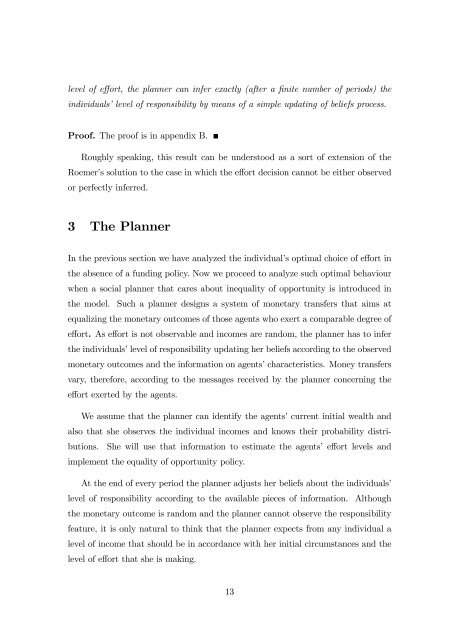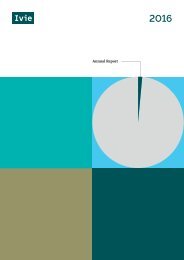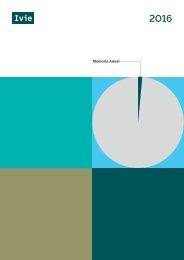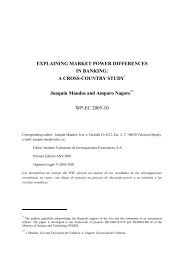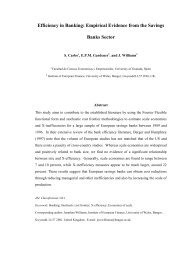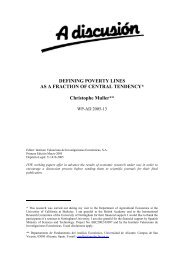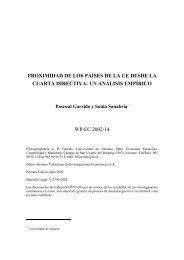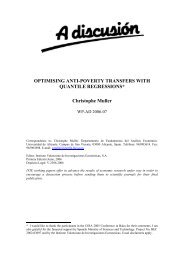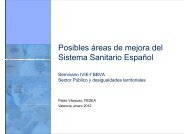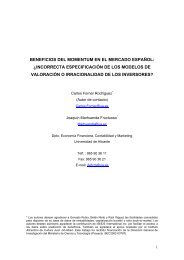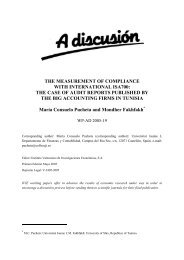Create successful ePaper yourself
Turn your PDF publications into a flip-book with our unique Google optimized e-Paper software.
level of e¤ort, the planner can infer exactly (after a …nite number of periods) the<br />
individuals’level of responsibility by means of a simple updati<strong>ng</strong> of beliefs process.<br />
Proof. The proof is in appendix B.<br />
Roughly speaki<strong>ng</strong>, this result can be understood as a sort of extension of the<br />
Roemer’s solution to the case in which the e¤ort decision cannot be either observed<br />
or perfectly inferred.<br />
3 The Planner<br />
In the previous section we have analyzed the individual’s optimal choice of e¤ort in<br />
the absence of a fundi<strong>ng</strong> policy. Now we proceed to analyze such optimal behaviour<br />
when a social planner that cares about inequality of opportunity is introduced in<br />
the model. Such a planner designs a system of monetary transfers that aims at<br />
equalizi<strong>ng</strong> the monetary outcomes of those agents who exert a comparable degree of<br />
e¤ort. As e¤ort is not observable and incomes are random, the planner has to infer<br />
the individuals’level of responsibility updati<strong>ng</strong> her beliefs accordi<strong>ng</strong> to the observed<br />
monetary outcomes and the information on agents’characteristics. Money transfers<br />
vary, therefore, accordi<strong>ng</strong> to the messages received by the planner concerni<strong>ng</strong> the<br />
e¤ort exerted by the agents.<br />
We assume that the planner can identify the agents’current initial wealth and<br />
also that she observes the individual incomes and knows their probability distributions.<br />
She will use that information to estimate the agents’ e¤ort levels and<br />
implement the equality of opportunity policy.<br />
At the end of every period the planner adjusts her beliefs about the individuals’<br />
level of responsibility accordi<strong>ng</strong> to the available pieces of information. Although<br />
the monetary outcome is random and the planner cannot observe the responsibility<br />
feature, it is only natural to think that the planner expects from any individual a<br />
level of income that should be in accordance with her initial circumstances and the<br />
level of e¤ort that she is maki<strong>ng</strong>.<br />
13


